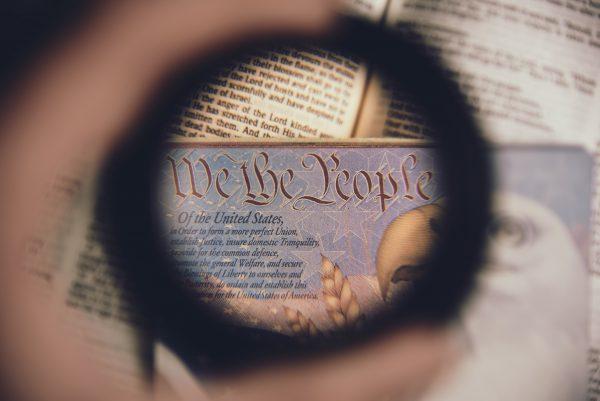Does the public charge doctrine impact claimants to the 9/11 Victim Compensation Fund?
On August 14, 2019, the U.S. Departments of State (DOS) and Homeland Security (DHS) published final regulations to expand the “public charge doctrine,” which generally provides grounds of inadmissibility and deportation of immigrants who are likely to depend on government welfare benefits for subsistence. The new regulations have been met with public outcry and outrage as they could potentially jeopardize the immigration status of individuals with low and moderate incomes. A
s a 9/11 lawyer, I have been asked by many clients and community members whether monies received from the 9/11 Victim Compensation Fund (9/11 VCF) would cause them to be labeled public charges and subject to denial of admission or deportation.
The short answer is no:
- Compensation from the 9/11 VCF should not be subject to consideration under the current version of the public charge doctrine, which has been in effect since 1999.
- The 2019 public charge regulations are subject to litigation and have been temporarily blocked by lawsuits filed in U.S. District Courts including the South District of New York. Until the pending litigations are resolved, the regulations re not in effect and have no impact on victims claiming to the 9/11 VCF (or anyone for that matter). Further, even if the Trump Administration’s regulations eventually become law as they are written, 9/11 victim compensation awards would still not be included for public charge consideration.
What is the Public Charge Doctrine?
While the doctrine has been part of immigration laws since the late 1800s, the most recent version can be found in the Immigration and Naturalization Service’s 1999 Notice titled “Field Guidance on Deportability and Inadmissibility on Public Charge Grounds” (“the 1999 Notice”). This notice generally provides that an individual may be classified as a public charge if he or she received federal, state, or local cash assistance or were institutionalized for long-term care at government expense. Examples of benefits subject to public charge consideration include Supplemental Security Income and cash assistance from the Temporary Assistance for Needy Families (TANF) program.
However, the mere receipt of either or both income assistance or long-term care benefits would not automatically trigger public charge classification. The 1999 Notice includes a number of other factors to be considered including age, financial status, education, skills, assets, health condition, and family status. Determinations are to be made on a case-by-case basis by considering the totality of the circumstances.
The notice specifically provides that the following benefits are not subject to public charge consideration: Medicaid, housing benefits, nutrition programs (SNAP), emergency disaster relief, treatment of communicable diseases, immunizations, child care services, educational assistance, unemployment compensation, and cash payments that have been earned, such as Social Security, government pensions, and veteran’s benefits. Also, generally, a lawful permanent resident who possess a “Green Card” cannot be denied U.S. citizenship for lawfully receiving any public benefits for which he or she is eligible.
In conclusion, under the 1999 Notice, which is currently valid, an award from the 9/11 Victim Compensation Fund (9/11 VCF) would not be a factor in determining whether an individual may be considered a “public charge.” The Notice includes an exhaustive list of government benefits for consideration, which does not include the 9/11 VCF, and excludes for consideration “earned benefits” such as workers’ compensation, veterans’ benefits, unemployment insurance, and Social Security Disability Insurance.
9/11 VCF awards are not a traditional government benefit as the fund is not limited to United States residents or citizens, and awards are paid as an alternative to litigation. Additionally, 9/11 VCF awards are only granted to individuals who have been diagnosed with a condition certified by the federal government as being caused by 9/11 toxins exposure. Therefore, 9/11 VCF awards are “earned” in the same way disability benefits are earned.
What is the 9/11 Victim Compensation Fund (9/11 VCF)?
The 9/11 VCF provides tax-free compensation to victims of 9/11 toxins exposure who have suffered from a related illness, and to the families of those who have since passed. Compensation is available to anyone who meets the eligibility requirements- it is not limited to United States citizens. Congress recently extended the 9/11 VCF deadline to October of 2090 in recognition of skyrocketing rates in cancers and deaths caused by 9/11 toxins exposure.
Individuals who were in Lower Manhattan, south of Houston Street, between September 11, 2001, and July 31, 2002, may be eligible for the 9/11 VCF if they have been diagnosed with covered physical conditions including cancer, breathing issues, sinus issues, digestive issues, and lung disease. Families of those who suffered from a 9/11-related illness during their lifetime and have since passed may be eligible for compensation as well.
Does the Trump Administration’s expansion of the Public Charge Doctrine impact recipients of 9/11 compensation?
No. The Trump Administration’s version would change the standard to exclude those likely to receive government benefits. Specifically, its expansion would be applied to those who are more likely than not to receive benefits for more than 12 months in the aggregate within any 36-month period. Additionally, the designated list of benefits considered would be expanded to include Medicaid, Supplemental Nutrition Assistance Program (SNAP), and housing benefits (Section 8 and public housing), not 9/11 compensation.
Currently, the Trump Administration’s regulations, which were due to become effective on October 15, 2019, have been temporarily halted by injunctions granted in U.S. District Courts, including the Southern District of New York.
As stated above, the public charge doctrine, and its proposed expansion, would not include compensation from the 9/11 VCF. Therefore, 9/11 victims need not fear the public charge doctrine when submitting a claim to the 9/11 VCF.



